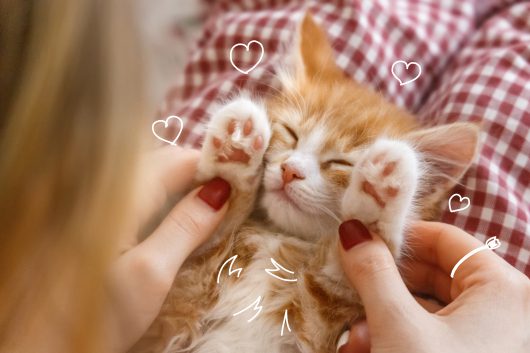Cats and furballs…a cause for concern?
Seeing your cat attempting to hack up a hairball can be a distressing experience for most pet owners and if it is the first time that it has happened, you may wonder whether it is ‘normal’ behaviour or a cause for concern. Hairballs will affect most cats at least once in their life and can be more problematic for some. Here is our guide to understanding why hairballs can affect cats and whether you can help your pet to minimise their occurrence.
Why do furballs develop?
Most cats are very fastidious about grooming themselves and this is the main reason why hairballs can develop. During the grooming process, loose fur can become caught on the hook-like structures on your cat’s tongue and is swallowed. It will then often make its way out of the body with no adverse repercussions, but if it doesn’t pass out of the digestive system, it can form a hairball. Your cat will then induce vomiting to try to get rid of it.
Any cat can potentially develop furballs but they are more common for some cats. This includes long-haired breeds and those who compulsively groom themselves due to the fact that they are more likely to swallow more fur.
What are the symptoms of furballs?
If your cat is trying to regurgitate a hairball, you will probably see them retching, hacking, vomiting and gagging in their attempts to bring it up. This will then be followed by the hairball itself.

Are they dangerous?
The odd hairball is not usually a cause for concern. Indeed, most cats will experience them at some point in their life. Hairballs should not be dangerous for your cat if they are successfully brought up but there is a chance that they can have more serious consequences.
If the typical symptoms continue without your cat producing a hairball, it could be a sign of intestinal blockage, especially if this is accompanied by loss of appetite, lethargy, constipation or diarrhoea. This will need urgent medical attention from your vet. Having a cat insurance policy in place will help you take care of any vet bills.
Can I help my cat to avoid them?
You can’t prevent your cat from ever getting a hairball but you can reduce their chances through regular grooming so that there is less loose fur to potentially be swallowed when they look to self groom. There are plenty of useful products around to help you groom your feline friend. This has the added bonus of being a great way to bond with your cat on a regular basis.
You might also be interested in…
Get a quote in minutes…

Existing customers
Call now on 0808 164 7999
to discuss your policy with us.
Monday - Friday: 08:00 - 20:00 Saturday: 09:00 - 14:00





 Back
Back
